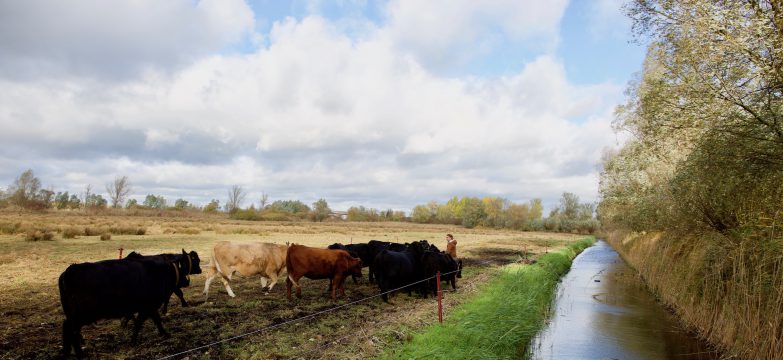This article inaugurates the beginning of the FEC Journal. It will be a written series that introduces and explores small businesses that align with the FEC mission of encouraging local food makers and producers. This series hopes to serve as a resource and as inspiration for other industry folk in sharing the stories of local food entrepreneurs in the Brandenburg area.
written by Madeline McLean
On an exceptionally cold and windy day during the first week of November, we go visit the Angus cows at Schwarze Kuh Farm in Havelland. We ride with Maria Mundry in her van amongst several extremely heavy barrels of Biertreiber for her cows patiently awaiting lunchtime. Biertreiber is leftover beer malt from brewing and I learn that it’s a protein-rich feed that serves as a more optimal feed for beef cattle in the place of conventional corn or soya silage. Winding down country roads leaving Berlin behind I get to know Maria as she talks to me about Schwarze Kuh Farm. It quickly becomes clear how much love and thoughtfulness she and her partner Rasmus put into the process of raising their cows. Schwarze Kuh is a unique farm for their choice to raise Angus beef cattle, which is not the typical breed in the beef cattle industry in Germany. They have chosen Angus specifically for two main reasons: for their inherent flavorful meat and their docile traits as animals. While the meat quality benefits consumers, the latter is to benefit their children.
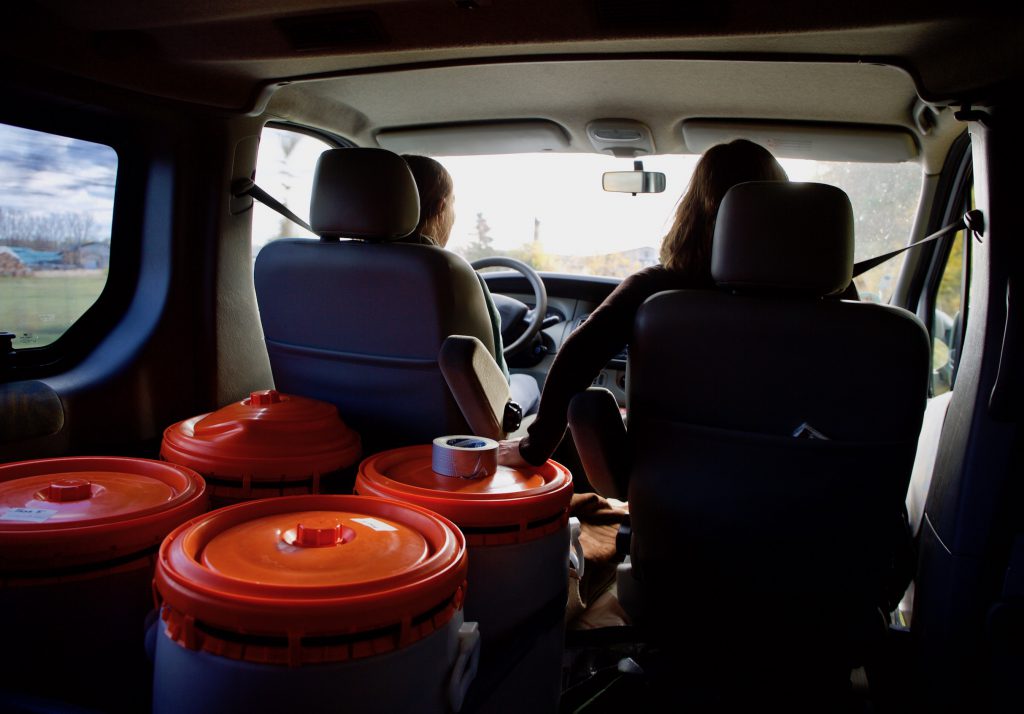
As we arrive in the pastures outside of Warsow, Havelland, feeding the cows becomes the first priority. Maria drags over huge hay bushels and the feeding frenzy begins. She passes around plump apples as a treat for the cows, feeding them by hand with a motherly tenderness. It becomes clear that these cows have an incredible disposition with distinguishing personalities; they’re not just a mass of numbers.
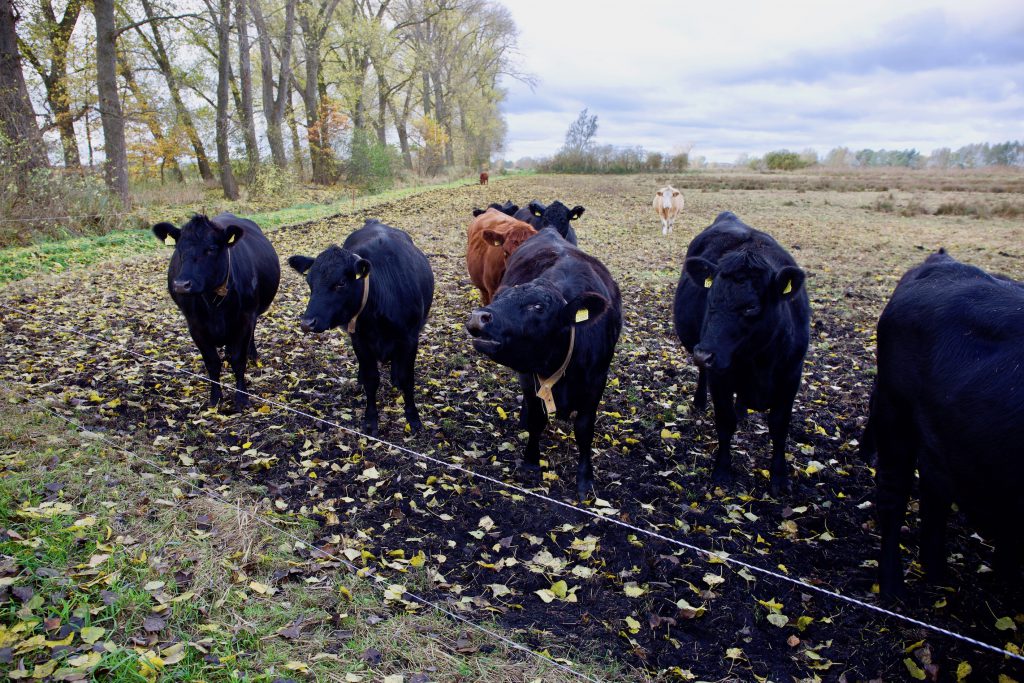
Taking refuge from the bitter wind, we get back into the van and speak at length about the upsides and downsides of Bio-certified meats and the politics thereof in Germany and in the United States (which truly gives one a headache!). Maria and Rasmus have made the deliberate choice not to become Bio-certified. While they understand the Bio-certification system, they prefer the true ecological (Öko) approach to cultivating their farm and raising beef cattle. Unfortunately, the Bio-certification system can be an inherently myopic – and sometimes the stamp is used for marketing purposes only – whereby the treatment of the animal is not much different than that of conventional farms. This is where Maria & Rasmus’ differ greatly: their holistic approach extends far beyond solely producing tasty meat. The farm’s land, the health of the soil and the support of local famers and producers are all taken into account at Schwarze Kuh Farm. For instance: they get their Biertreiber from Heidenpeters in Berlin. This is a great way to recycle a huge volume of otherwise useless byproduct bound for the trash. The cows graze on open fields, which allow for plant diversity and soil fertility. Rather than using imported bulk soya and corn-based feeds, Maria and Rasmus support neighboring farmers by buying hay and apples from them, which is also optimum for the cows digestion, livelihood and thus the flavor of the meat. A Bio-certification would restrict many, if not all of these unique methods.
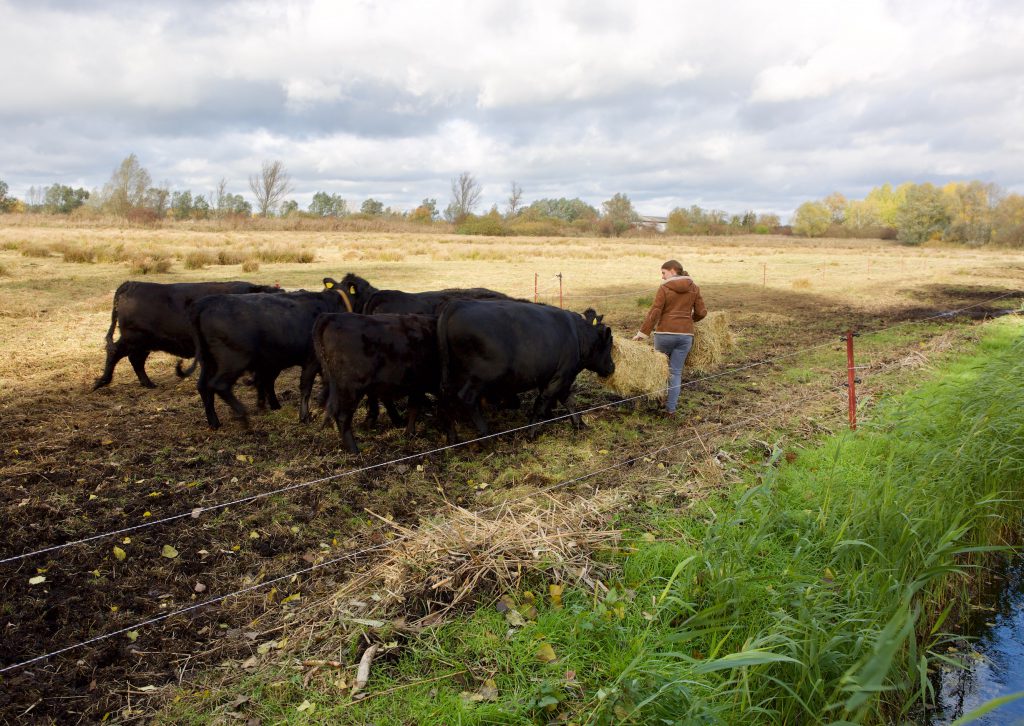
And their intentions don’t just end there. Maria and Rasmus also aim to educate the meat-consuming public by offering butchered cuts from the entire animal, or what is refered to in the States as Nose-to-Tail butchery. They offer American, British and French cuts alongside the typical German cuts you’d find at a typical Metzgerei. This not only educates the consumers but it is also a matter of honoring the animal. Now this is something I can get behind!
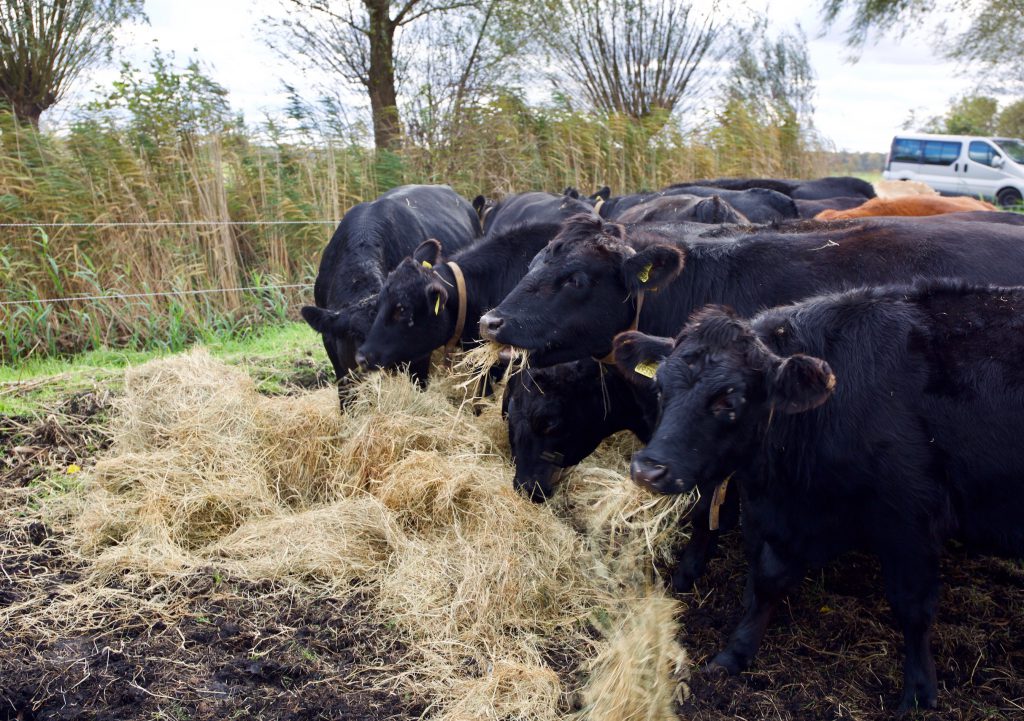
Caring about what you consume with regards to meat is an undoubtedly political decision. I am American and buying meat within our very fraught meat industry means that I have to align my morals, values and taste preferences in every choice; I am aware that my wallet has a lot of power when it comes to my choices buying food. This burdensome task often exhausts me, and this isn’t different now that I live in Germany either. I’m on constant lookout for the small, local farmers that help make my decisions easier by being conscientious producers. And that is exactly what is so noteworthy about Maria and Rasmus’ approach: they take the headache away from the consumer because when you buy meat from them, you know that your meat will not only taste great, but the quality is unparalleled thanks to their deliberately thoughtful process in raising their cows. They believe in true transparency when it comes to their work; even their website is meticulous and can be used as a great resource for educating oneself in this rocky meat-consuming territory. In every step of the process they deeply believe in and put into practice the ‘old-world’ way of raising beef cattle and with a huge sigh of relief, as my consumer burdens evaporate, I say thank goodness!
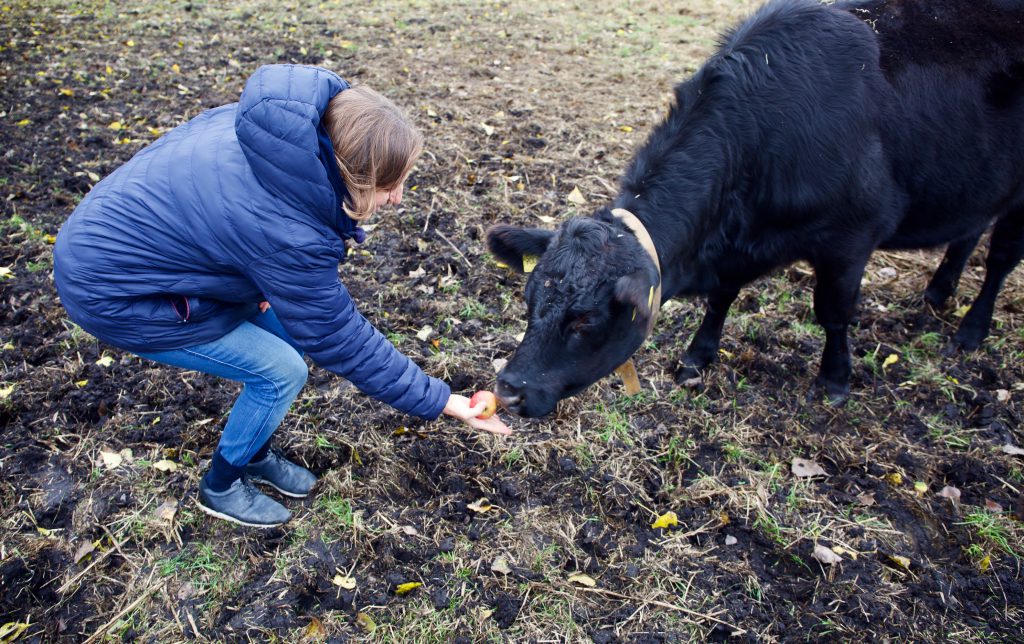
Visit the Schwarze Kuh website for details about the farm, as well as information on buying their meat. And don’t forget to support them and share the love on Facebook!
About the author
Madeline McLean is a chef and food entrepreneur from New York, now living in Berlin to follow an interest in European culinary and food systems. She is an avid advocate for local food economies and promoting a slow-food approach to cooking and eating.
